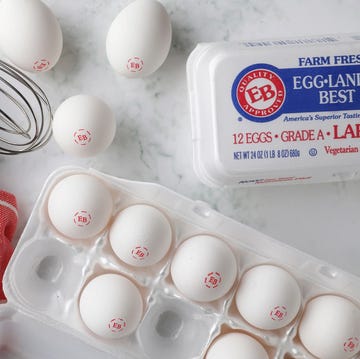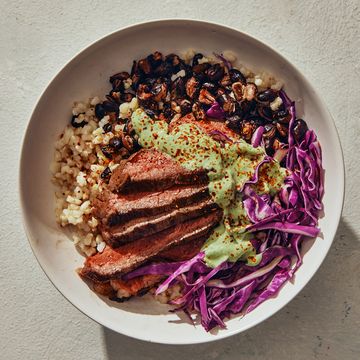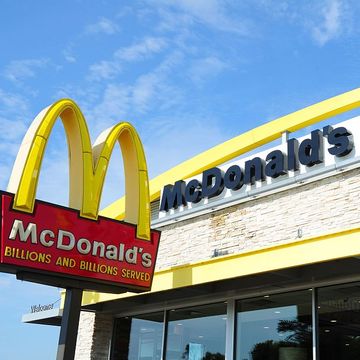Do you feel like you literally can’t even live without chocolate…and lollipops…and cake? You’re not alone. The average American consumes up to 22 teaspoons of sugar a day, which is twice as much as recommended in the Dietary Guidelines for Americans as the safe upper limit. And that’s a serious problem, because high levels of added sugars may be linked to obesity, type 2 diabetes, and certain cancers.
But for some, cutting back on sugar is easier said than done. That’s because it’s highly addictive, triggering the same rewards center in the brain as, er, cocaine, says Cassie Bjork, RD, LD, owner of Healthy Simple Life, who was once addicted to sugar herself. Here are seven signs you may have a full-blown sugar addiction, too.
RELATED: 9 Disturbing Facts About Sugar That You Need to Know
1. One bowl of ice cream just won’t cut it anymore.
As with addiction to other substances, people who are truly addicted to sugar find themselves needing more and more over time in order to feel satisfied, says Academy of Nutrition and Dietetics spokesperson Jennifer McDaniel, RD, who specializes in weight management. “For some, the more one engages in a food pattern, say eating ice cream after dinner, the higher the likelihood the brain becomes desensitized and then requires more ice cream, or ice cream plus chocolate sauce, to reach the same happy places,” she says.
RELATED: Sugar Is Killing Us. Here’s Everything You Need to Know
2. You own 50 pairs of sneakers and overdo it at happy hour on the reg.
Along with genetics, past food experience, and body composition, your addictive personality could determine the difference between really loving cupcakes and really needing cupcakes. “The analogy is similar to substance abuse,” says McDaniel. “Some can easily stop at one glass of wine, where others cannot.”
3. “Unlimited breadsticks” is your dream come true.
Sugar addiction isn’t just about sweets, says Bjork. All carbs turn into sugar in your body. “You may not have a ‘sweet tooth,’ but if you crave potato chips or pretzels—or even bread—like they’re going out of style, then you are really craving sugar,” she says. (Minds. Blown.)
RELATED: 56 Different Names for Sugar
4. You keep walking past the vending machine at work...
...And eventually you give in. When you’re addicted to something, whether it’s cigarettes, alcohol, or sugar, you keep exposing yourself to it even when you know it’s harming your health, says Bjork.
5. There’s a history of alcohol dependence in your family.
If one of your parents has struggled with alcohol dependence, especially your dad, a sweet tooth might be in your DNA. Research shows that the same genes are responsible for having a sweet preference and becoming an alcoholic, and that these genes can be passed down to kids.
RELATED: The Silent and Growing Health Danger That All Women Need to Know About
6. You have a love-hate relationship with sugar.
Overdoing it here and there is normal, but if you continue your habit of eating a second bowl of ice cream despite negative consequences, like how full you feel, an upset stomach, guilt, or impaired sleep or workouts, this could signal a sugar dependence, says McDaniel.
“For someone who is at healthy body weight and is confident about their health, a food addiction might actually not cause a negative experience,” she says. “However, for those who are trying to lose weight or have a chronic condition like diabetes, the consequences then become negative.”
7. You’re going through withdrawal.
It’s one thing to miss sweets if you decide to cut them out, but if you experience withdrawal symptoms like feeling moody or in a mental fog, or you have headaches or involuntary shaking (this can happen!), then yes, you are definitely addicted to sugar.













